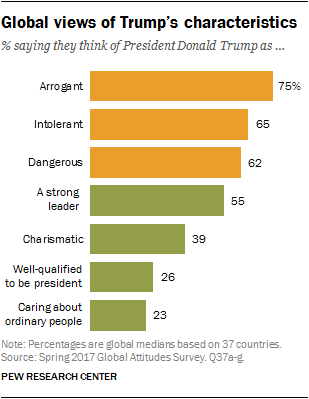By Blair Hines
Over the past month, I have knocked on thousands of doors in Pennsylvania and New York and encountered many Trump voters. In every case where the MAGA voter is willing to talk, I found their support for Trump quite shallow.
I start by being genuinely curious: “What do you like about him?” Almost always the response is “He’s a strong leader…” Then I ask, “What do you identify that makes Trump a ‘strong leader?’” This usually makes them flummoxed and they answer with something about how, well. . . they don’t like his negativity or meanness and “wish he would check himself more.” I then might ask either “Do you think this is really who he is as a person?” or “how will voting for Trump be good for the country?”
Generally at this point they say something like: “I can’t vote for Harris,” and I go with that resistance: “You don’t have to vote for Trump either.” At this point some will agree not to vote for Trump or suggest they can write in a candidate (Nikki Haley has come up two or three times). But if they seem still interested in talking I might ask “What don’t you like about Harris?” The answer is usually that she isn’t experienced. Since Trump is neither experienced nor knowledgeable, I think this answer may stand in for “she’s a woman.”
If the conversation doesn’t proceed much past “He’s a strong leader,” I have found that my broad statement — “There is so much hate now in the world…” or “Do we need more hate in our country?” gets the conversation going. Trump supporters agree that Trump says too many hateful things. Asking them: “How will this be good for our country?” or “Do you think that this is actually who he is as a person?” reinforces their awareness that Trump is not a good choice.
Canvassers throughout swing states are probably finding the same shallow support for Trump. How else to answer it? Veteran canvasser Steve Schear suggests another talking point — Trump’s evident derangement. “The mounting evidence that he is unstable,” Schear said, “including the 40 minutes of music rather than questions at a town hall, the cancellation of his appearances on ‘60 Minutes’ and before the NRA, and the Univision town hall where he called January 6 ‘a day of love’ all help create a powerful argument that Trump is not fit for the job. I've used the derangement argument with Republicans here in Montana, combining it with his age, and it seems effective.'"
I probably have three or four canvassing conversations a day suggesting weak support for Trump. I believe it is most important to highlight their misgivings and support their not voting for him. I can let the advertisements and news give them more information about Harris that might get them to vote for her. My principle is not to “oversell the sale.” I don’t want them to vote for Trump and they seem to need permission to follow their misgivings. It doesn’t take that much from me to give them that permission.







In the third chapter of Pamela Cooper-White's book, "The Psychology of Christian Nationalism" titled HOW TO TALK ACROSS THE DIVIDE, she provides helpful steps for conversation. This chapter could be helpful for those who want to learn more about how to talk with Trump supporters who are on the fence. @carollindsay @davidsours
This was very interesting. Are there training programs to learn how to conduct these types of door to door conversations?